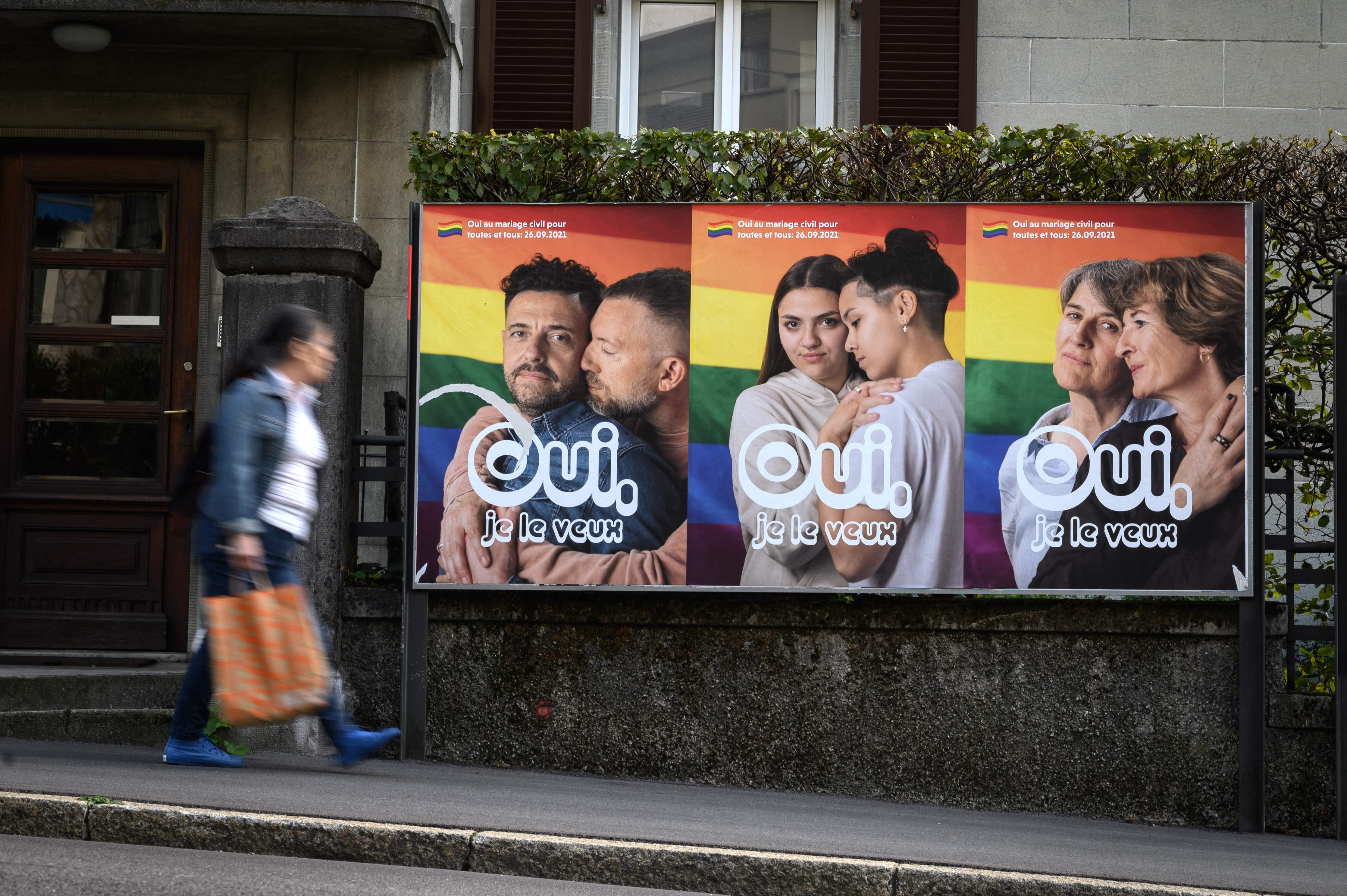Switzerland approves same-sex marriage and adoption in referendum
Results show that 64.1% of the electorate voted in favour

Your support helps us to tell the story
From reproductive rights to climate change to Big Tech, The Independent is on the ground when the story is developing. Whether it's investigating the financials of Elon Musk's pro-Trump PAC or producing our latest documentary, 'The A Word', which shines a light on the American women fighting for reproductive rights, we know how important it is to parse out the facts from the messaging.
At such a critical moment in US history, we need reporters on the ground. Your donation allows us to keep sending journalists to speak to both sides of the story.
The Independent is trusted by Americans across the entire political spectrum. And unlike many other quality news outlets, we choose not to lock Americans out of our reporting and analysis with paywalls. We believe quality journalism should be available to everyone, paid for by those who can afford it.
Your support makes all the difference.Swiss voters have decided by a clear margin to allow same-sex couples to marry and adopt children, after a national referendum on Sunday.
According to results provided by the Swiss federal chancellery, 64.1 per cent of the electorate voted in favour of same-sex marriage in the nationwide referendum that was conducted under Switzerland’s system of direct democracy.
The nation’s federal government and parliament had already approved the amended “Marriage for All” legislation, but opponents led by the right-wing Swiss People’s Party (SVP) forced a referendum on the issue.
The Alpine country has authorised same-sex civil partnerships since 2007, though it is one of the last countries in Europe to outlaw same-sex marriage.
The amended law will also mean that married lesbian couples will be allowed to have children through sperm donation, which is currently legal only for married heterosexual couples.
It will make it easier for foreign spouses of a Swiss individual to get citizenship too.
Opponents of the law have faced criticism for allegedly using unfair tactics during their campaign.
In a provocative campaign, activists used images of crying babies while LGBT+ hotlines were flooded with complaints and hostile emails.
It marked a stark contrast to proponents waving “Yes, I do” rainbow flags at Zurich and Geneva pride parades.
Same-sex couple Corinne Guntern and Anouk Oswald, from Zurich, told the Reuters news agency that the vote represented an important milestone for their future.
“I want to be able to choose for myself if I want to marry this partner next to me and if it’s the right path for us to start a family,” said Ms Oswald, 30. “It’s important to show the younger generation you don’t need to hide.”
Ms Guntern, also 30, said it was not fair that a single woman could adopt a child while a same-sex couple could not.
“Today, if I reach a certain age and I’m single, regardless of my sexual orientation, I can be accepted into the adoption process and apply to adopt a child. But if I’m in a same-sex partnership, right now, I can’t,” she said.
“Of course, a child needs safety and love ... but I don’t think it makes a difference whether that’s given by a straight or gay couple,” she added.
Most countries in western Europe already recognise same-sex marriage.
The Netherlands was the first country in the world to legalise same-sex marriage, in 2001, with Belgium following in 2003 and Spain in 2005.
Additional reporting by Associated Press and Reuters.
Join our commenting forum
Join thought-provoking conversations, follow other Independent readers and see their replies
Comments